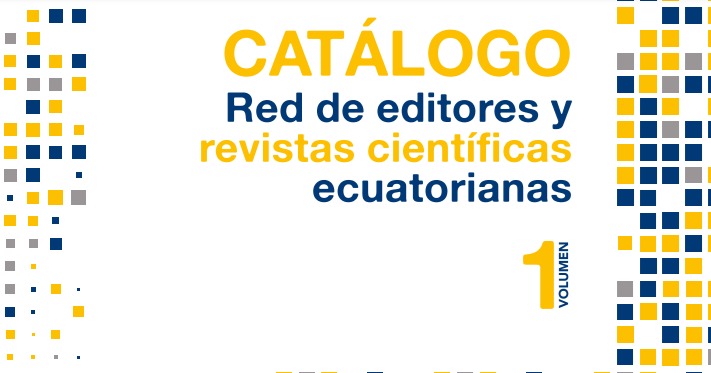ECUADOR AS A DESTINY COUNTRY OF A VENEZUELAN MIGRATION
Palabras clave:
migration, population, economy, politicsResumen
Venezuelan migration has a political and social background that brings with it an economic crisis, which has been affecting different countries from Latin America including Ecuador. On the other hand, the lack of possibilities for the development of a good life, where access to basic services is not affected has been one of the latent consequences for the displacement of the Venezuelan population to various countries whose effects are visible in the Ecuadorian environment. Is not strange to see Venezuelan citizens, women and men, as staff working in small businesses such as: clothing stores, restaurants, groceries stores, ice cream shops, among others. Also, informal work and begging cannot be put aside which has forced a large number of individuals of that nationality to be observed in the city of Cuenca in recent months. The methodology used in the development of this research has been considered the execution of interviews and life stories allowing to obtain data directly to be analyzed and interpreted with scientific rigor. The research was initially developed with theoretical elements of the birth of socialist policies, and the socioeconomic concepts that have been given throughout history; not having a specific database, a second stage was continued where the diagnosis of the situation facing Venezuela within the areas described above was made. And finally the different migratory processes were analyzed and the characteristics of Venezuelan citizens living in Ecuador, mainly in the city of Cuenca.
Keywords: migration, population, economy, politics.
RESUMEN:
La migración venezolana tiene un trasfondo, tanto, político como social, que ha traído consigo una crisis económica afectando a los diferentes países de América Latina, entre ellos Ecuador. Por otro lado, la falta de posibilidades para el desarrollo de un buen vivir donde no se perjudique el acceso a los servicios básicos ha sido una de las consecuencias latentes para el desplazamiento de la población venezolana a diversos países, cuyos efectos son visibles en el entorno ecuatoriano; no es extraño, ver a personas tanto hombres y mujeres de nacionalidad venezolana laborando en locales comerciales como: restaurantes, boutiques, heladerías, tienda de abarrotes, supermercados, tiendas de electrodomésticos, entre otros; además, no se puede dejar de lado el trabajo informal y la mendicidad que ha obligado a desarrollar un gran número de individuos de dicha nacionalidad que se observa de manera especial en la ciudad de Cuenca en los últimos meses. La metodología utilizada en el desarrollo de la presente investigación se ha considerado la ejecución de entrevista e historias de vida, permitiendo obtener datos de forma directa para ser analizados e interpretados con rigurosidad científica. La investigación fue desarrollada en un primer momento con elementos teóricos del nacimiento de las políticas socialistas, y los conceptos socioeconómicos que se han dado a lo largo de la historia; al no poseer una base de datos concreta se continuó con una segunda etapa donde se realizó el diagnóstico de la situación que enfrenta Venezuela dentro de los ámbitos descritos anteriormente. Y finalmente se analizó los distintos procesos migratorios y las características de los ciudadanos venezolanos radicados en el Ecuador principalmente en la ciudad de Cuenca.
Palabras Clave: migración, población, economía, política.
Recibido: 05 de octubre de 2021; Aceptado: 27 de diciembre de 2021; Publicado: 07 de enero de 2022.
Descargas
Citas
Bajo Santos, N. (2017). Concepts and theories about immigration. Escurialense Legal and Economic Yearbook. (XL, Ed.)
Boron, A., Amadeo, J., & González , S. (2006). Marxist theory today: problems and perspectives. Buenos Aires: CLASCO.
Carrillo Morán, J. M. (2003). Epistemology, Paradigm Science in Social Work. Seville Aconcagua.
Castillo Crasto, T., & Reguant Álvarez, M. (2017). Perceptions of Venezuelan migration: causes, Spain as a destination, expectations of return.
Duarte, P. (2014). Obtained from joseluisacosta. Obtenido de htt://joseluisacosta.com.ve/files/Hugo%20Rafael%20Chavez%20Frias%20BIOGRAFIA.pdf
El Comercio. (2017). The majority of Venezuelans who came to the country professionals.
Germani, G. (1968). Politics and Society in an Age in Transition. Buenos Aires: Paidós.
Guevara, A. B. (2018). Analysis of the “Organic Law of Human Mobility.
Harnecker. (1979). Social classes and class struggle. Chile Archive, Social Political History. Popular Movement.
Izurieta Guevara, A., & Viteri, M. (2018). Analysis of the Organic Law of Human Mobility.
Izurieta Guevara, A., & Viteri, M. (2018). Analysis of the Organic Law of Human Mobility. USFQ Digital Repository.
Malamud, A. (2017). La Nacion. Obtained from lanacion.com.ar/opinion/unmal-momento-para-salir-del-populismo-nid1983269/.
Marcano, P., & López Hurtado, P. (2016). Venezuela was as rich as Norway in the 1960s. What happened? The Spanish.
Married, F. (2017). The qualified migration of Venezuelans to Quito. Realities and expectations of your work situation.
National Assembly. (2017). Organic Law of Human Mobility. Quito: National Editor.
Salinero Rates, M. I. (2015). Populismo in Latin América. Barcelona: University of Barcelona.
Sundell, L. (2007). Populist leadership in a Bolivarian cotext? Latinamerikainstitutet, Stockholm, 16.
Troyano, F. (2002). Bibliographic exploration on foreign immigration studies in Spain. Collective io É.
Zamora Lomelí, C. (2016). Social movements, democracy and the rule of law. A look at the contribution of social movements to the democratization and institutionalization of the rule of law.
Descargas
Publicado
Cómo citar
Número
Sección
Licencia
Derechos de autor 2022 Revista Científica y Arbitrada de Ciencias Sociales y Trabajo Social: Tejedora. ISSN: 2697-3626

Esta obra está bajo una licencia internacional Creative Commons Atribución-NoComercial-CompartirIgual 4.0.
























